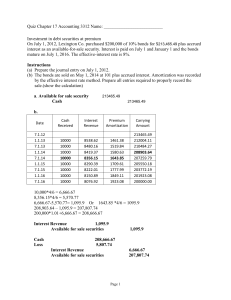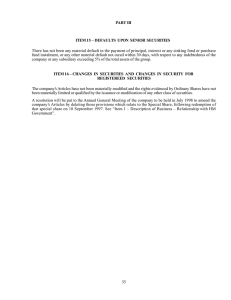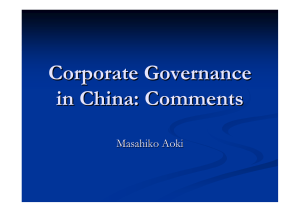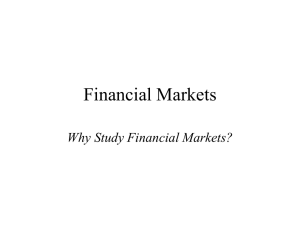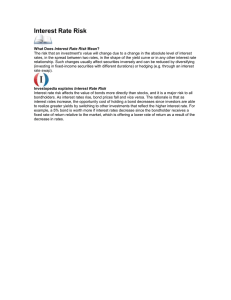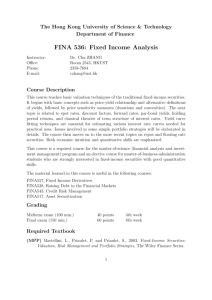Investment Alternatives (Assets) Chapter 2
advertisement
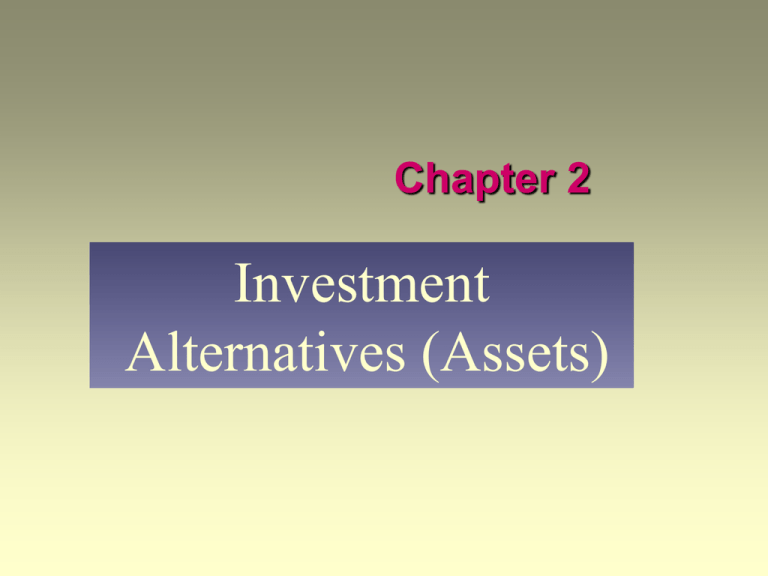
Chapter 2 Investment Alternatives (Assets) Learning Objectives • types of financial assets • non-marketable financial assets • money market and capital market securities. • options and futures. Non-Marketable Financial Assets • Savings deposits • Canada Savings Bonds (CSBs) Guaranteed Investment Certificates (GICs) Money Market Securities • Treasury bills, commercial paper, Eurodollars, repurchase agreements, banker’s acceptances (B/As) Capital Market Securities Fixed-income securities • Marketable debt with maturity greater than one year • More risky than money market securities • Fixed-income securities have a specified payment schedule Dates and amount of interest and principal payments known in advance Fixed-Income Securities • Bonds – long-term debt instruments • Major bond types: Government of Canada bonds U.S. Treasury bonds Provincial bonds Provincially-guaranteed bonds – Ontario Hydro U.S. federal agency securities – GNMAs (Ginnie Maes), FNMAs (Fannie Maes) Fixed-Income Securities • Major bond types (cont’d): Corporate bonds • • • Usually pay semi-annual interest, are callable, carry a sinking fund provision, and have a par value of $1,000 Convertible bonds may be exchanged for another asset Risk that issuer may default on payments Asset-Backed Securities • Asset-backed securities are “securitized” assets • E.g. mortgage-backed securities Investors assume little default risk as most mortgages are guaranteed by a federal government agency Equity Securities • Represent an ownership interest • Preferred stock Preferred shareholders are paid after bondholders but before common shareholders Dividend known, fixed in advance May be cumulative if dividend omitted Derivative Securities • Securities whose value is derived from some underlying security • Futures and options contracts are standardized and performance is guaranteed by a third party Risk management tools • Warrants are options issued by firms Options • Exchange-traded options are created by investors, not corporations • Call (Put) gives the buyer the right but not the obligation to purchase (sell) a fixed quantity of shares at a a fixed price before a certain date • Options can be sold in the market at a price • Increases return possibilities Futures • Futures contract: A standardized agreement between a buyer and seller to make future delivery of a fixed asset at a fixed price A “good faith deposit” called margin, is required of both the buyer and seller to reduce default risk Used to hedge the risk of price changes

